Are you looking to live a more sustainable lifestyle, but you’re not sure where to start? Composting is a great way to reduce your contribution to waste, improve the health of your soil, conserve some water, and combat climate change. Let’s dive into the many advantages of composting, and just how to put it into practice!
Why Should You Compost?
Composting Combats Climate Change
Maybe the biggest of all of the advantages of composting is that it can actually help combat climate change. The majority of organic waste, including food scraps that we throw out, ends up in landfills, effectively burying them underground with all the other trash.
This means that it no longer has access to oxygen from the air. Oxygen is required for organic material to break down. Adding our food scraps to the landfill deprives it of the oxygen it needs to decompose into the soil, the way it can in our compost bins.
Instead, the organic material breaks down into water and methane, a greenhouse gas. Keeping food waste out of landfills means fewer greenhouse gases are produced.
Waste Reduction
In the U.S. alone, over 100 billion pounds of food is wasted annually. That’s a whopping 40% of food that is produced for Americans to eat. Seriously! Almost half of the food that is available to eat in our country ends up in the trash.
Not only does this mean more waste in the landfill, but it also means a huge waste of resources. Learn more about food waste and the impact the food industry has on our environment in our sustainability section.
By composting at home or in your community, you are keeping more material out of the wastebin and thus out of the landfill.
Improves Soil Health
The soil additive produced by your compost bin is extra rich in nutrients and has a great structure! The compost helps bind soil particles together to create little clusters, leaving space for air, moisture, and nutrients.
The improvement of localized soil health is another one of the many advantages of composting.
Water Conservation
Composting actually helps you conserve water in your own garden! Nutrient-rich soil produced by composting allows plants to maximize water for growth, overall reducing the amount of water needed to grow.
It Can Save You Money on Gardening
The advantages of composting for the environment also just might end up saving you money in your home garden. For one, the improvement of the soil health in your garden means you likely won’t need to buy any extra fertilizers.
Plus, with conserving water in your garden comes a lower water bill!
How To Compost at Home
Now that you know some of the advantages of composting, let’s get started! Here’s a step-by-step guide to teach you how to compost.
Time needed: 14 days
How to Compost: A Step-By-Step Tutorial
- Acquire a Compost Bin or Compost Tumbler
Compost bins and tumblers are super accessible and easy to find! I would highly recommend checking on your city’s website first. Your city’s sanitation department just may allow you to request one for free! If that is not an option in your area, you can find them at most home improvement retailers including Home Depot and Lowe’s, or you can get a compost tumbler delivered right to your door. Tumblers are a little more durable and make it easier for you to turn your compost.
- Choose a Spot for Your Compost
The best place for your compost bin is in a fairly sunny spot directly on a patch of soil or grass. This way, insects and microbes have easier access to your compost. Speaking of insects, the bin or tumbler will attract them, so you may want a location on the opposite side of your yard. But most importantly, you want your compost in a location that is convenient for you.
- Install Your Compost
When you receive your compost bin, it will come with detailed instructions on how to set it up properly.
Your bin will be secured firmly into the ground, with the harvesting door easily accessible and the air vents being clear of any debris or anything else that may prevent oxygen from easily getting in.
In my experience, the entire process took only 20 minutes. - Get a Countertop Compost Pail
Having a countertop compost pail means you don’t have to run outside every time you have kitchen scraps you want to add to your compost. Keep a smaller, countertop compost pail that stays in your kitchen. That way, you only have to take it to your compost bin when it fills up. Look for one with a filter to help with the smell, and an extra inner bucket lining it for easy transfer. Countertop compost pails are sold at many home goods stores, or you can buy one online.
- Familiarize Yourself With What is Compostable and What is Not
The general rule is that any non-processed kitchen scraps can be composted including vegetables, grains and legumes, and coffee grounds. Backyard trimmings and dead leaves can be composted, too. Meat and fish should not be composted, and citrus and onion composting are more advanced. Check out this full guide of what can and can’t be composted.
- Balance Out Your Compost
Your compost needs both green and brown organics to be successful. Green organics include food scraps, grass clippings, and weeds. Brown organics include dead leaves, cardboard, and newspaper.
- Add Water
Another key ingredient for your compost bin is water. The water fuels the microorganisms that are breaking down your compost. Moisture is absolutely necessary for these microorganisms to thrive. Without these microorganisms, your compost does not have the ability to break down.
- Consider a Compost Starter
Compost starter is a soil-based additive that already contains the microbes your compost needs. Think of it as a little kick-starter for your backyard microbe party! You can add it on day one to get things going, or you can consider adding it after some time has passed if you feel things aren’t progressing. I use this Organic Compost Starter and have had great success!
- Turn Your Compost
Turning your compost not only more evenly distributes the microbes, but also adds air. Oxygen is necessary for the breakdown of the compost, so turning is highly recommended. Opting for a compost tumbler makes this process easier than with a compost bin.
- Wait!
Compost can take anywhere from 2 weeks to 2 years to yield any soil, so don’t get discouraged! I saw little to no movement in my compost for the first 6 months. You’ll also notice that some organics break down quicker than others, and that’s okay! Sifting through your compost and adding things back to the bin allows you to harvest soil quicker.
- Harvest your soil
You’ll know your compost is ready to harvest when it looks, feels, and smells like rich soil rather than, well, decomposing food.
As for withdrawing it, keep your tumbler or bins instructions close. There should be detailed instructions for you to follow on there.
What If I Don’t Have Space For A Bin?
If you’re in an apartment building, big city, or simply don’t have yard space, you can absolutely still compost! Here are 3 ways you can compost, even if you don’t have space for a compost bin.
Countertop Composter
This is by and large the quickest and easiest way to compost, which makes it the priciest.
One of the most common excuses I hear when I ask people if they compost is that it is too hard, or inconvenient—and I get it!
That’s why I love my Lomi kitchen composter: it sits on my countertop (looking sleek and stylish) and all I have to do is scrape my food waste into it and press a button to turn it into dirt.
It actually saves me time, while reducing how much garbage I send to the landfill as well as producing compost I can use in my plants and yard.
For more of my favorite kitchen appliances and utensils, check out this list of Eco Kitchen Essentials.
Compost On a Smaller Scale
You can still reduce your waste by composting on a smaller scale indoors. Indoor composting, or urban composting, is actually pretty easy and much quicker than backyard composting.
You’ll need an urban composting kit that includes a specially designed indoor bin and an accelerant spray.
It is designed to allow you to drain the water every so often until you are eventually left with the same compost product as backyard composting, but just in smaller quantities. You can then mix it with topsoil for your indoor house plants or plants on your balcony.
Community Composting
Do some research about composting in your community. You may be surprised to find food scrap drop-off locations. In this case, you can collect your compost in a countertop compost pail and drop your organic waste off periodically.
Search “{your city’s name} compost dropoff” to find out if this option is available to you.
Independent Composting Services
Maybe even the most convenient option yet is to look into independent composting services in your area. Just like trash day and recycling day, there are services that will allow you to roll your organic waste down to the curb and pick it up for you.
These programs can range in price. Some charge anywhere from $8-15 per pickup, and others charge anywhere from $15-$30 per month with weekly pickups.
Search “{your city’s name} compost pickup” and see what is available to you!
Are There Any Drawbacks of Composting?
So after reading this, you may be thinking, why wouldn’t I compost? And personally, I believe there is absolutely no reason not to.
But I want to make sure you know what you’re getting yourself into.
First and foremost, the initial cost of the equipment may pose an issue for accessibility. Backyard composting, assuming you are not able to request a free compost bin from your city’s sanitation department, will require a one-time investment of approximately $100 for both your backyard tumbler or bin and countertop compost pail.
Recurring costs of backyard composting are minimal, as an optional 5-pound bag of organic compost starter should last you a year, and costs around $15.
Outside of the cost, your compost will require some monitoring, and a little effort to turn and ensure you are balancing your green and brown organics.
Thirdly, your compost may have an unpleasant smell and attract some pests. I personally have not noticed much of a smell, but have noticed an increase in the number of flies in my backyard during the summer since I started composting.
Overall, I feel confident that the advantages of composting outweigh the drawbacks.
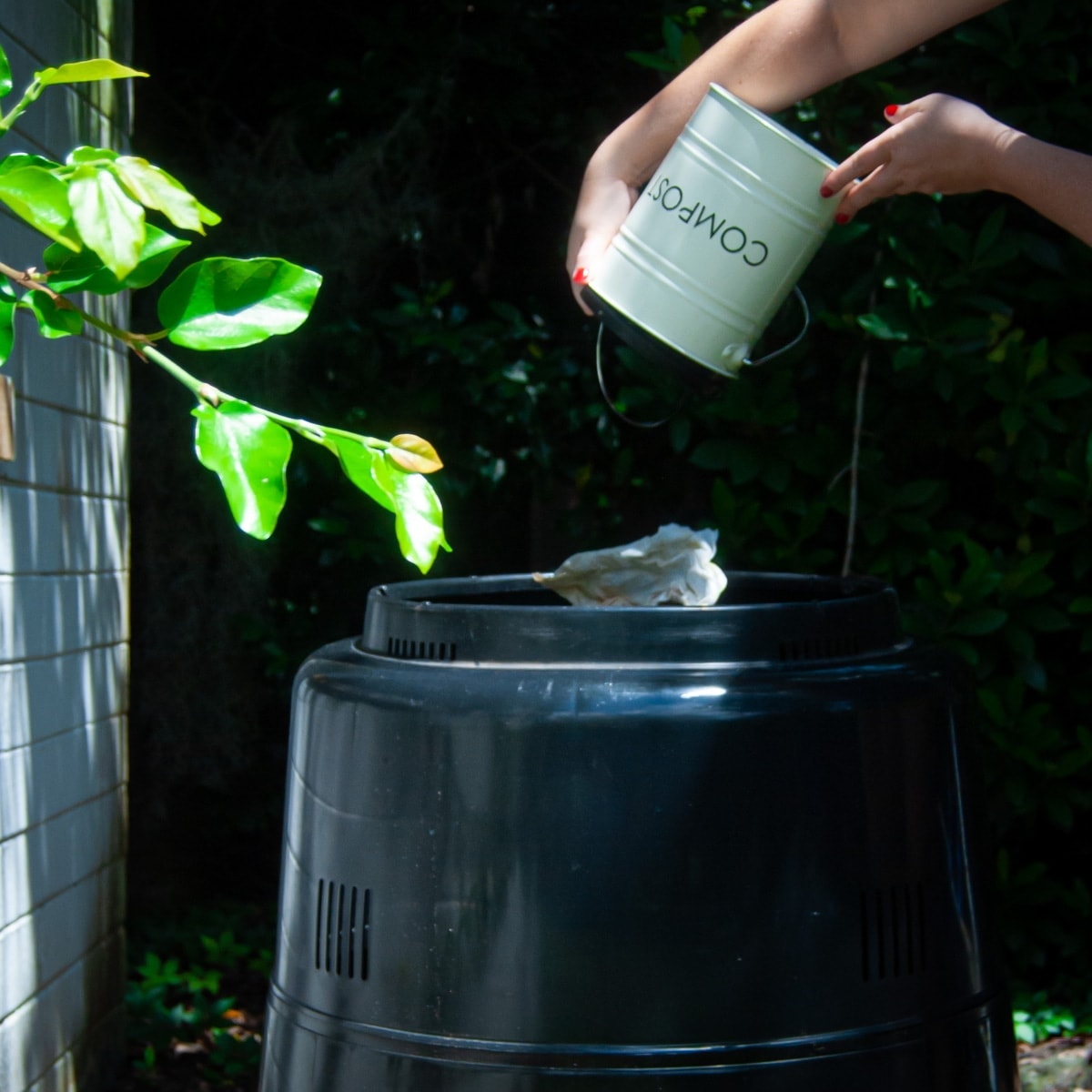
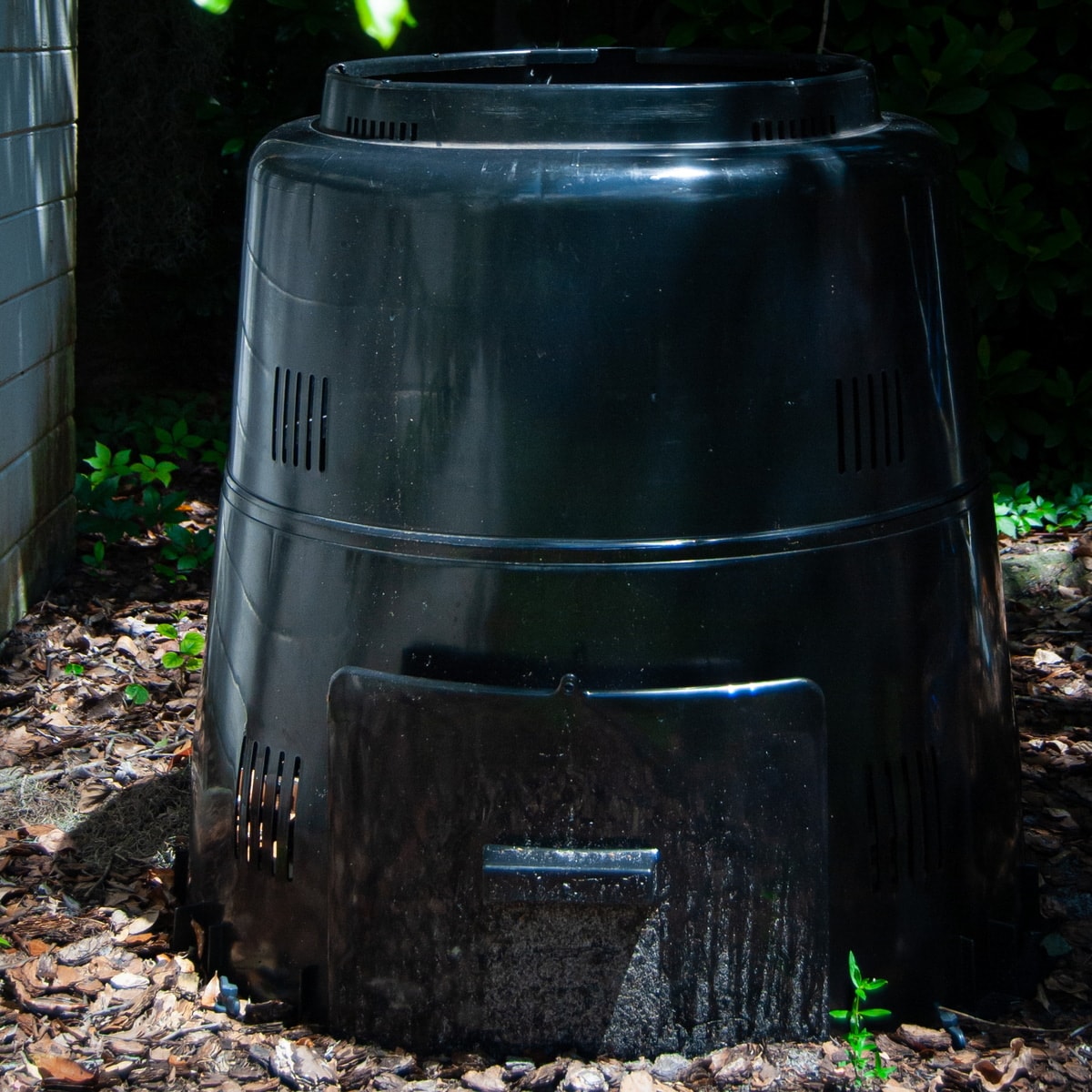
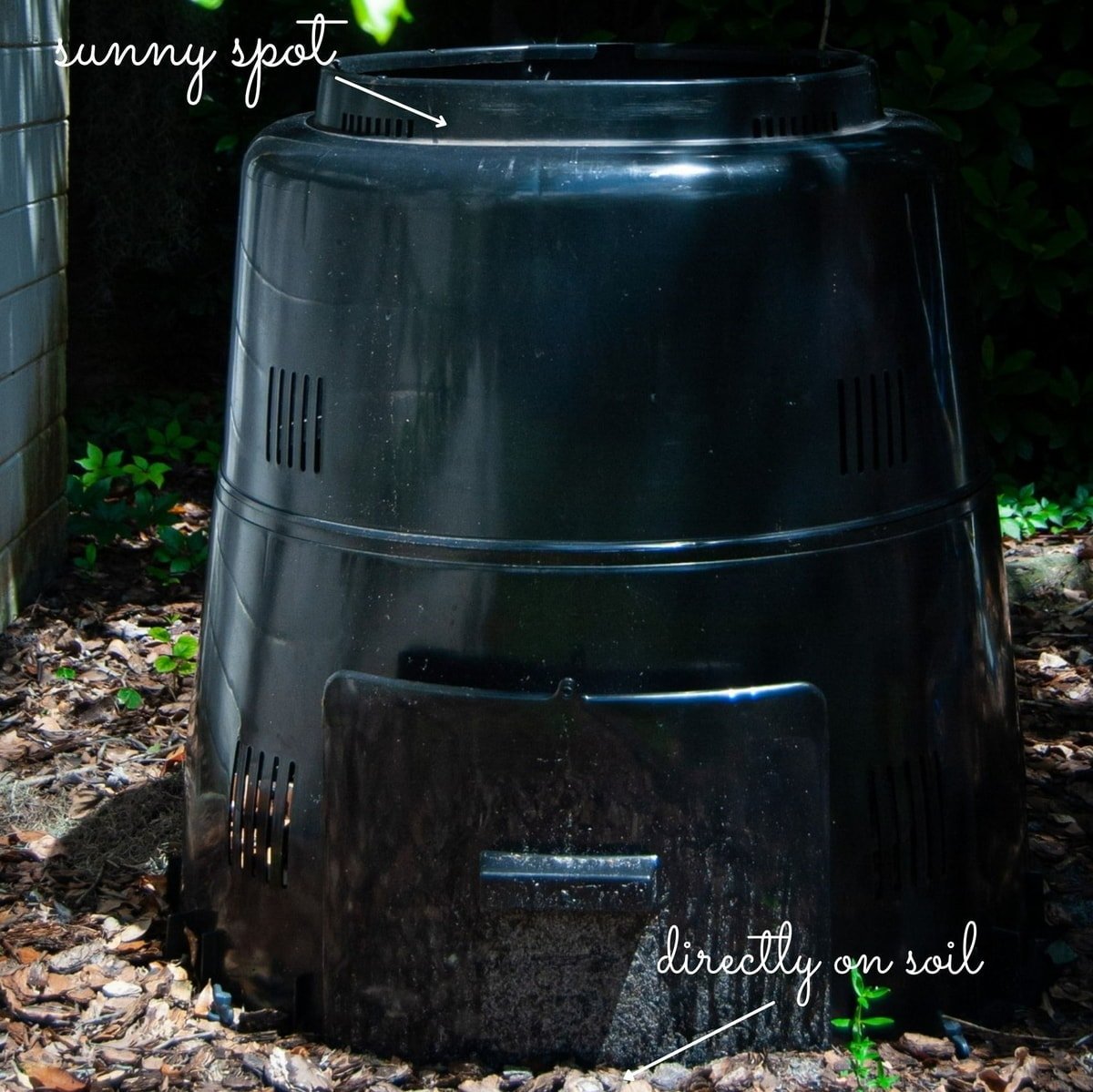
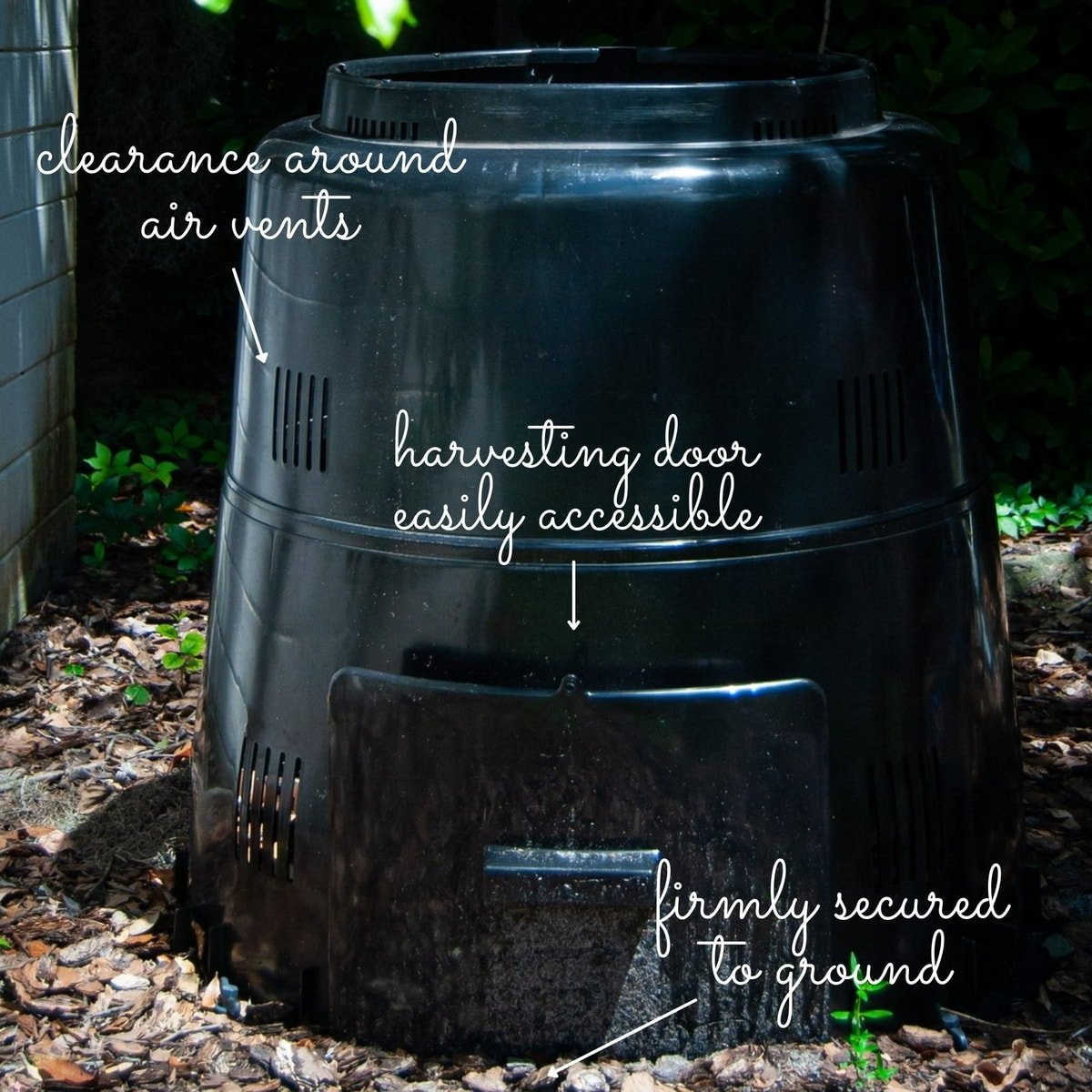
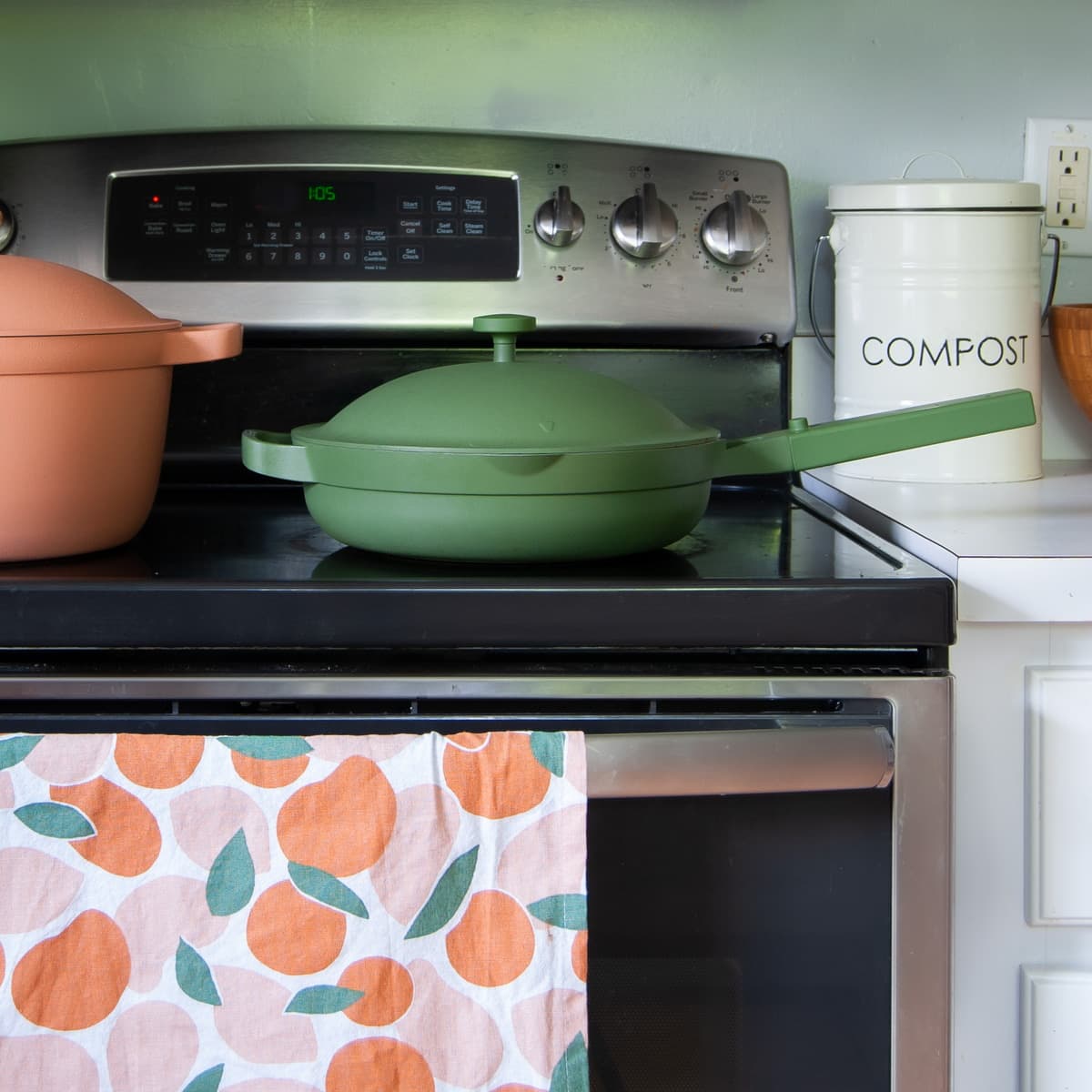
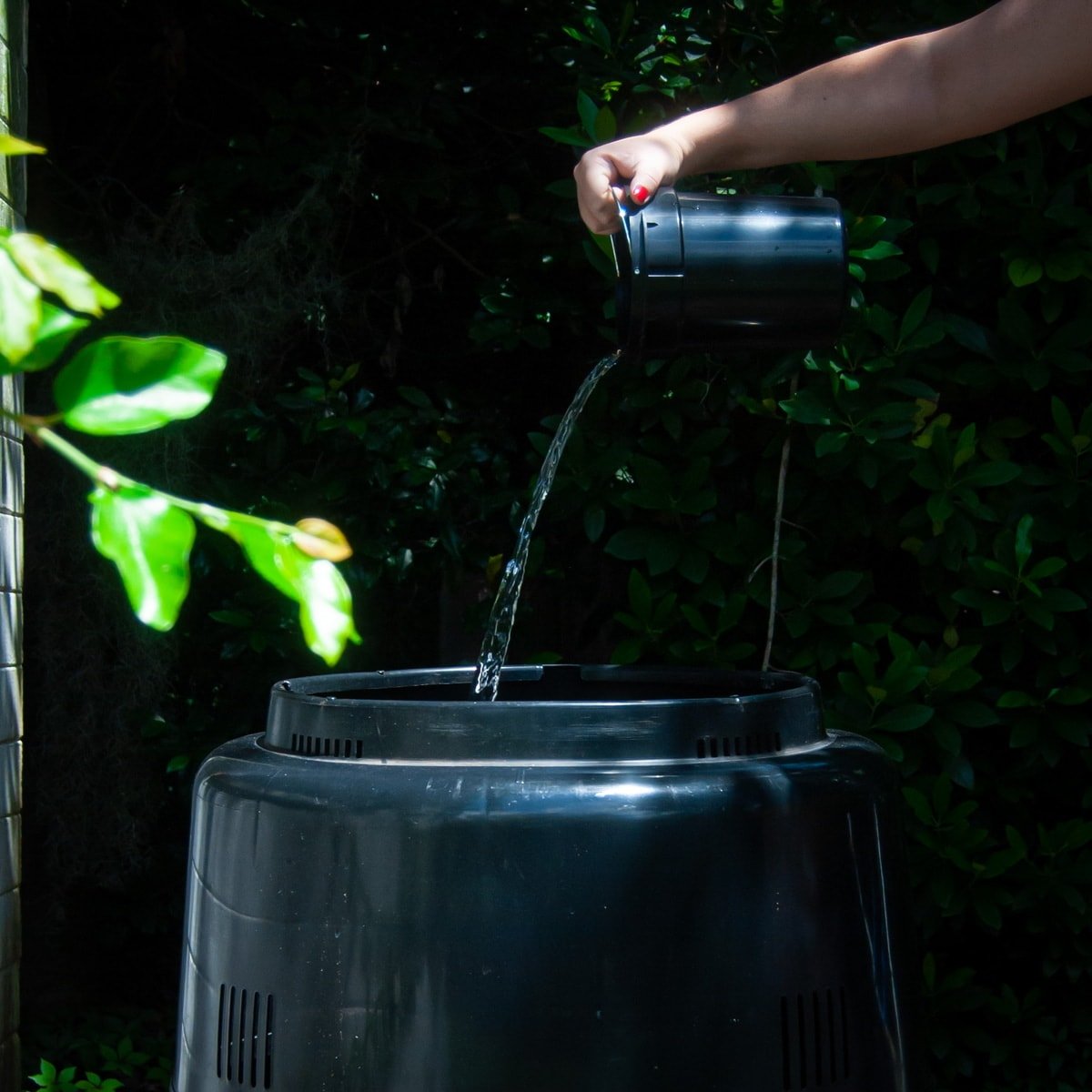
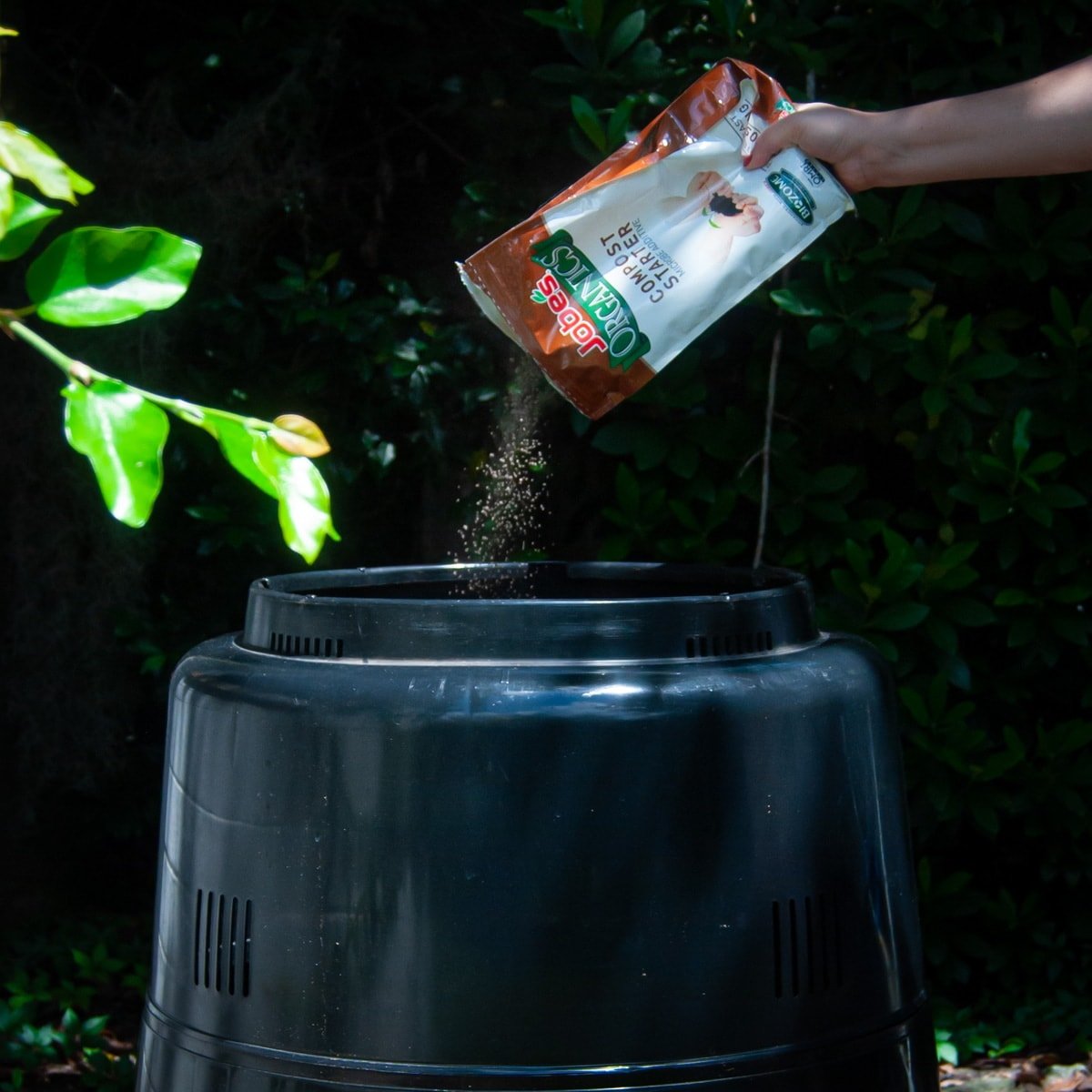
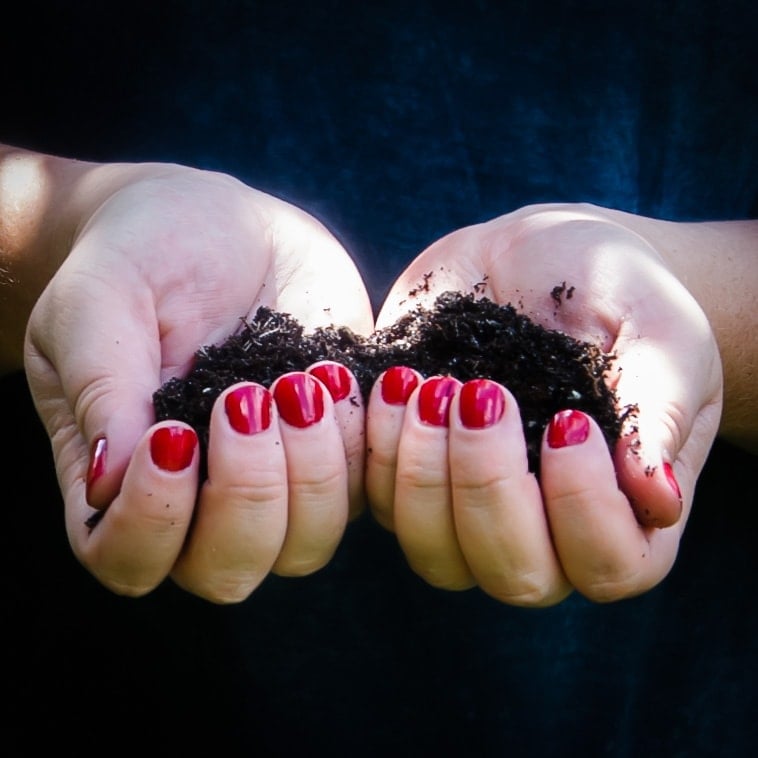

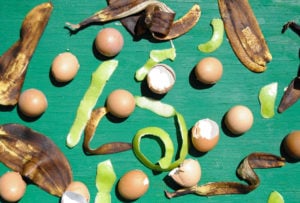

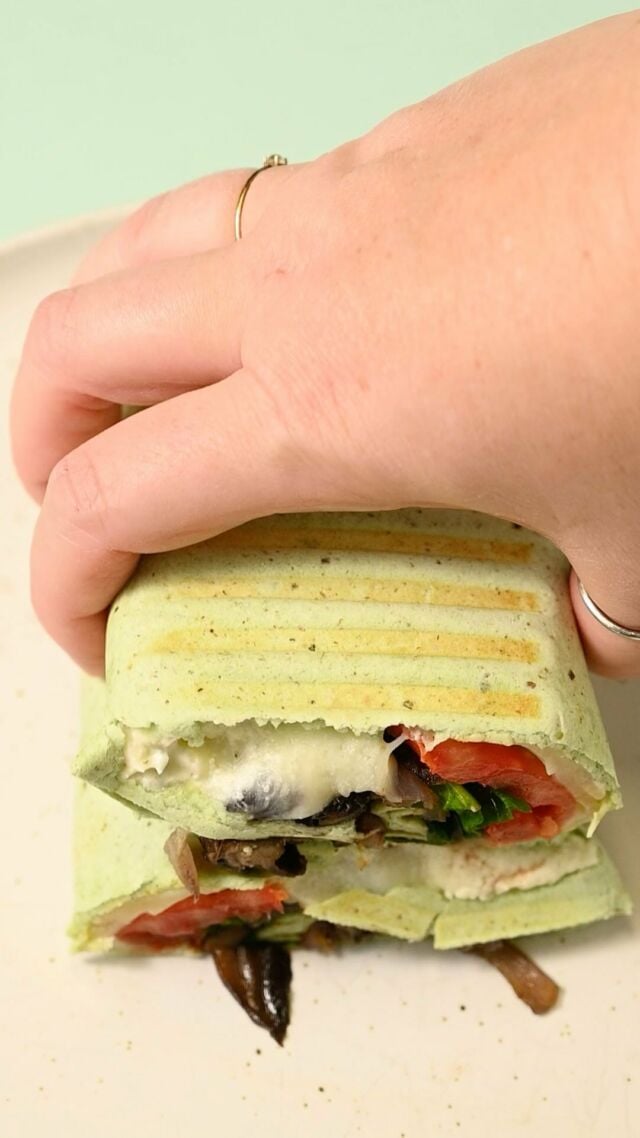
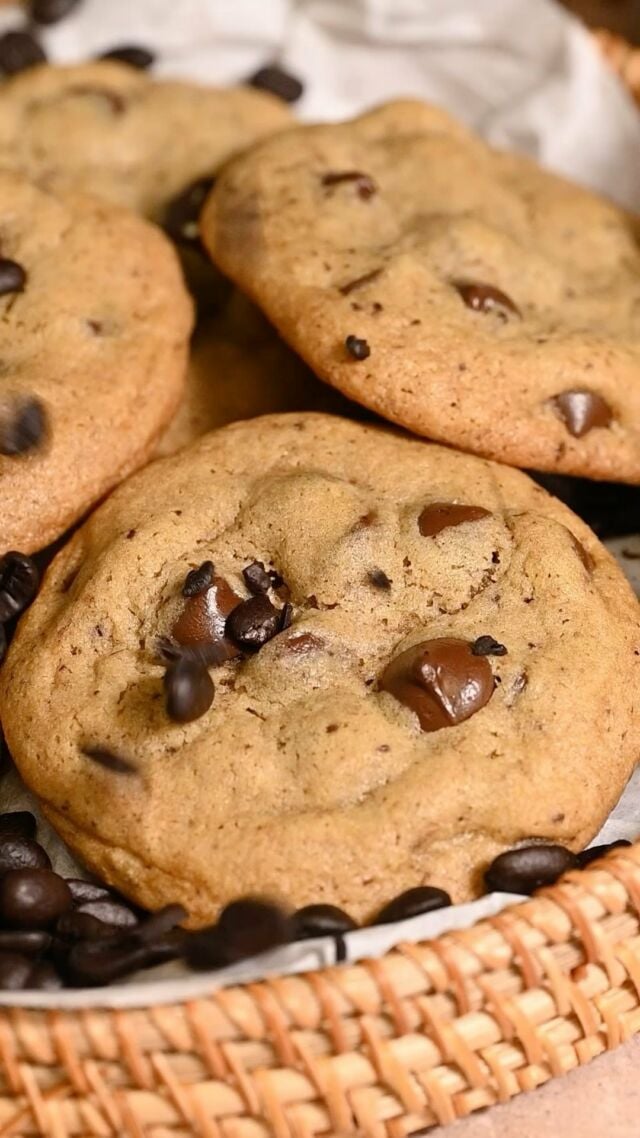
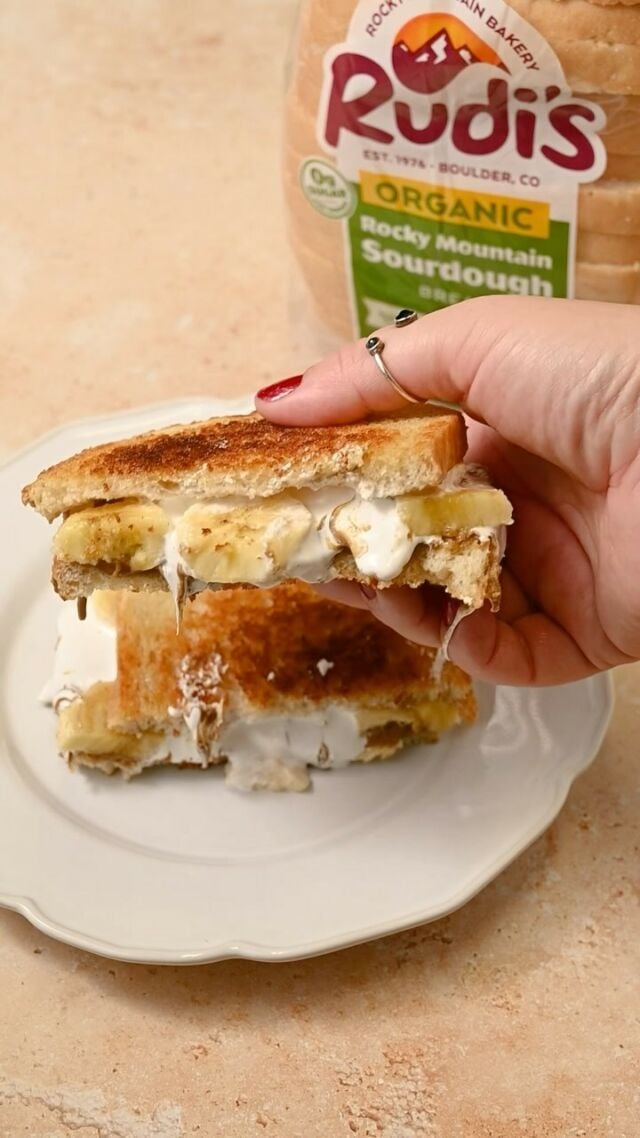

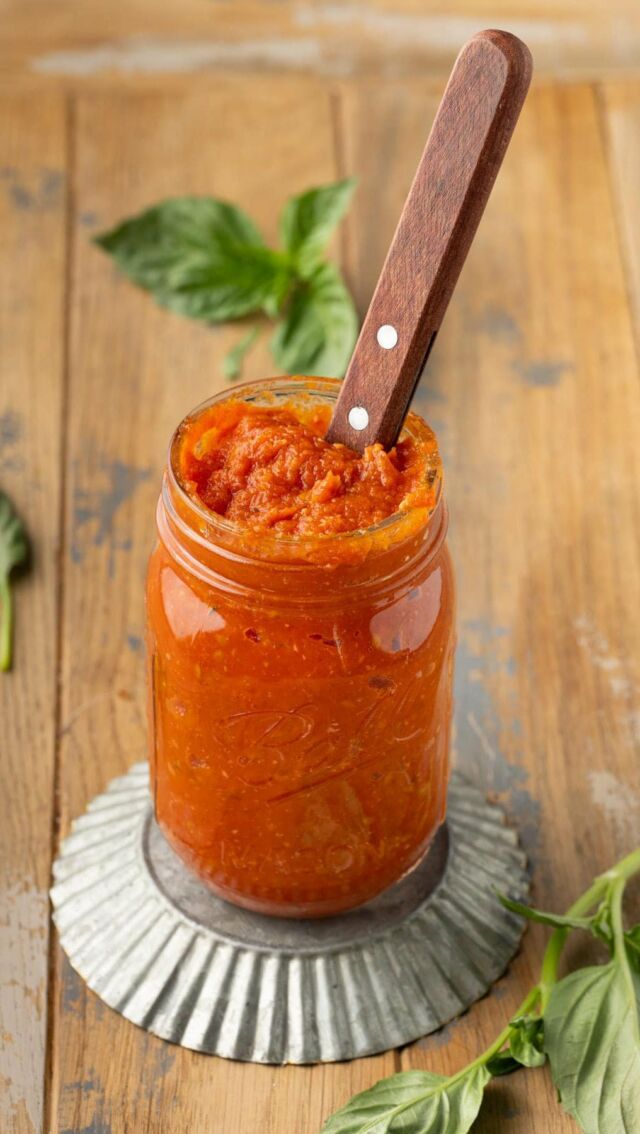
4 thoughts on “Advantages of Composting”
Just wanted to thank you for sharing this information. I just found a local compost site I can drop my compost off at thanks to your suggestion! (I live in downtown Chicago and had thought composting in the city would be too difficult.)
Hi Maya! Yay, I’m so pleased I could help—and I’m proud of you for making the effort!!
So helpful! Such a great resource!
Hannah!!
I’m so glad you found this helpful. Thank you so much for taking the time to read! Happy COMPOSTING!!!! 😉